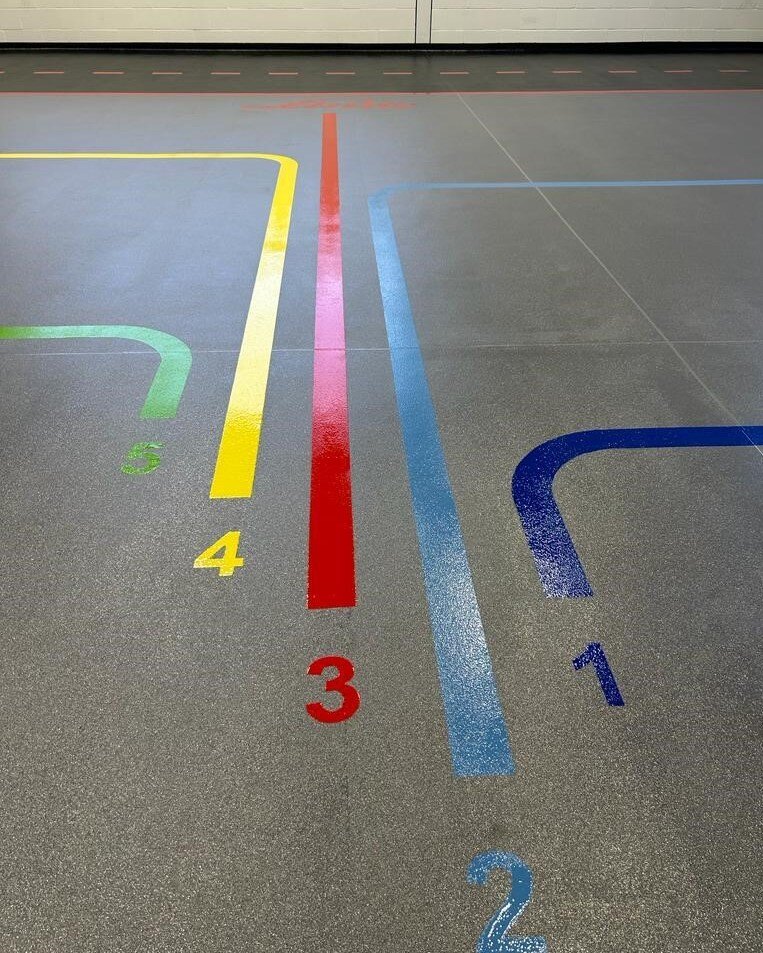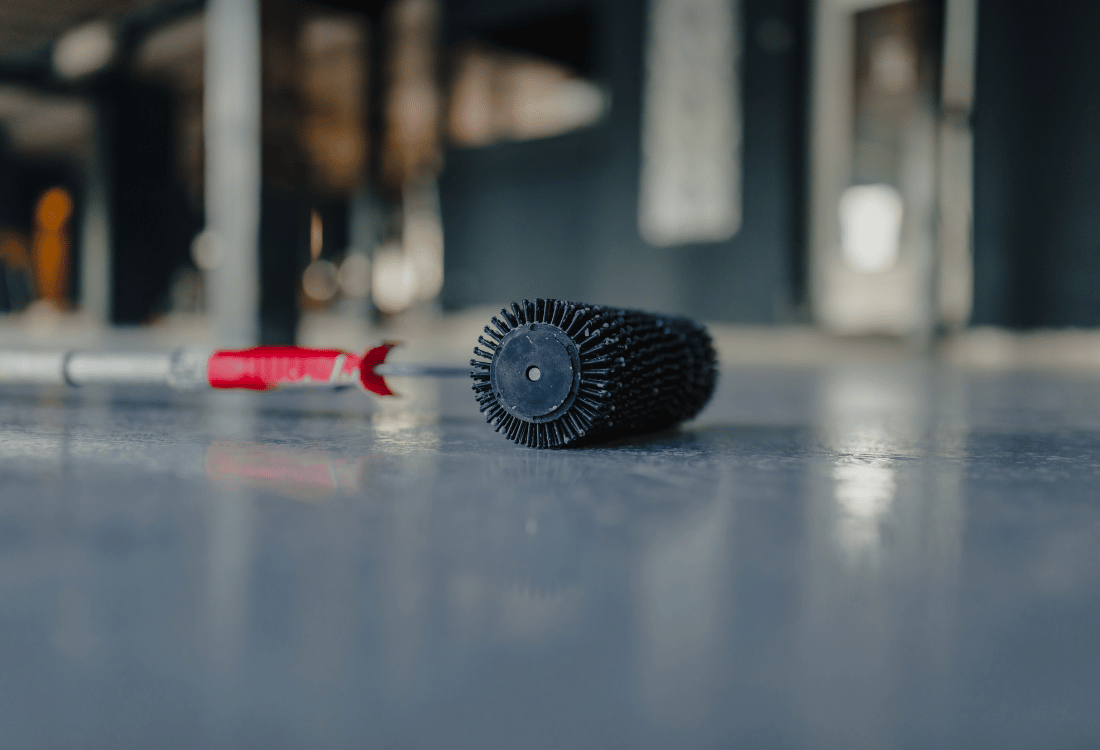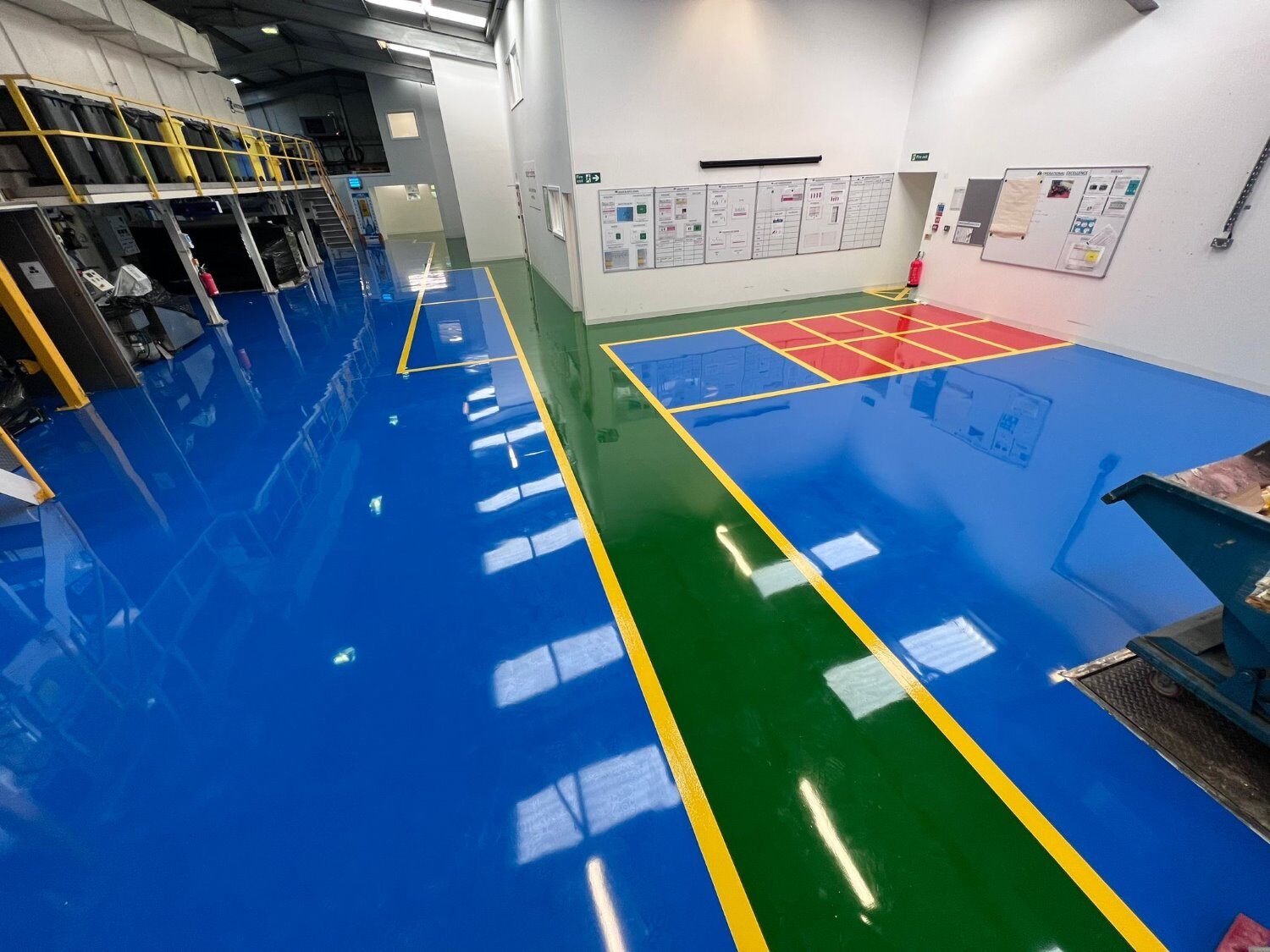Resin Flooring Maintenance: How To Clean A Resin Floor
In food production and storage areas, it is essential that all surfaces are kept clean and sterile, including the floor. This is not just to ensure your products are kept as sanitary as possible but also to meet the stringent compliance regulation expected in the food manufacturing industry.
Failure to meet these standards can result in fines, temporary or even permanent closure, as laid out in The Food Safety Act 1990. Failures of compliance can also result in reputational damage that can be very difficult to turn around.
If you have a hard wearing, food-specific resin floor then this is a good start. The resin surface is designed to have antibacterial properties and is resilient, preventing the formation of cracks and tears where bacteria and germs can build up. However, a regimented cleaning process is still required to keep resin floors clean and sterile and to maintain condition over time. Keep reading to find out everything you need to know about how to clean a resin floor:
Cleaning Routine
It is very important to establish an effective and thorough daily cleaning routine to remove dust, dirt and other debris from resin floors. Regular vacuuming or sweeping is essential, particularly in high-traffic environments. The cleaning routine should be an essential part of daily operations, carried out by trained staff and using appropriate and approved cleaning products. It should also be clearly logged and documented, including details about the time specific areas that were cleaned, by whom, and what products were used. Establishing good cleaning practices can help to develop a culture of cleanliness throughout your organisation.
Correct Cleaning Solutions And Products
It is very important to use appropriate cleaning solutions and the correct scrubbing pads for the specific floor surfaces. You should remember that pads come in different grades, with some being abrasive and others more gentle. Choose cleaning products that won’t cause damage to the resin floor and other surfaces but that also offer the required level of cleaning power.
Treating Chemical Spills
Quickly address any chemical spills on resin flooring to prevent any further damage. Ideally, you should try to address spills with absorbent material and then clean the area with warm water. If certain chemicals are not cleared up in good time, they may cause resin surfaces to break down leading to the need for more substantial repairs, or even replacement.
Spot Cleaning
Target any heavily soiled areas with spot cleaning for increased cleanliness and safety. Vacuum any excess debris, then mop the area extensively with warm water. For more stubborn stains it may be necessary to use a scraping tool to remove the worst of the debris. As with chemical spills, it’s important to take immediate action when larger spills and stains occur, to preserve the floor's integrity and appearance.
Specially designed hygienic flooring is legally required in food production environments and can help to facilitate cleaning and reduce the risk of contamination. However, even the most hard wearing, resilient, anti-bacterial resin floors need to be augmented by regular and correct cleaning. By instituting good cleaning practices, you can ensure resin floors are kept in ideal condition, meet with cleaning compliance and industry standards and offer long lifespans to boost return on investment.
If you have a resin flooring project you would like to discuss then contact our team or send us an email. We’ll be happy to discuss your hygienic resin flooring needs and any cleaning or maintenance questions you may have.
You May Also Like
These Related Stories

Which resin flooring should I choose?

A Contractors Quick Guide To Types Of Resin Flooring


